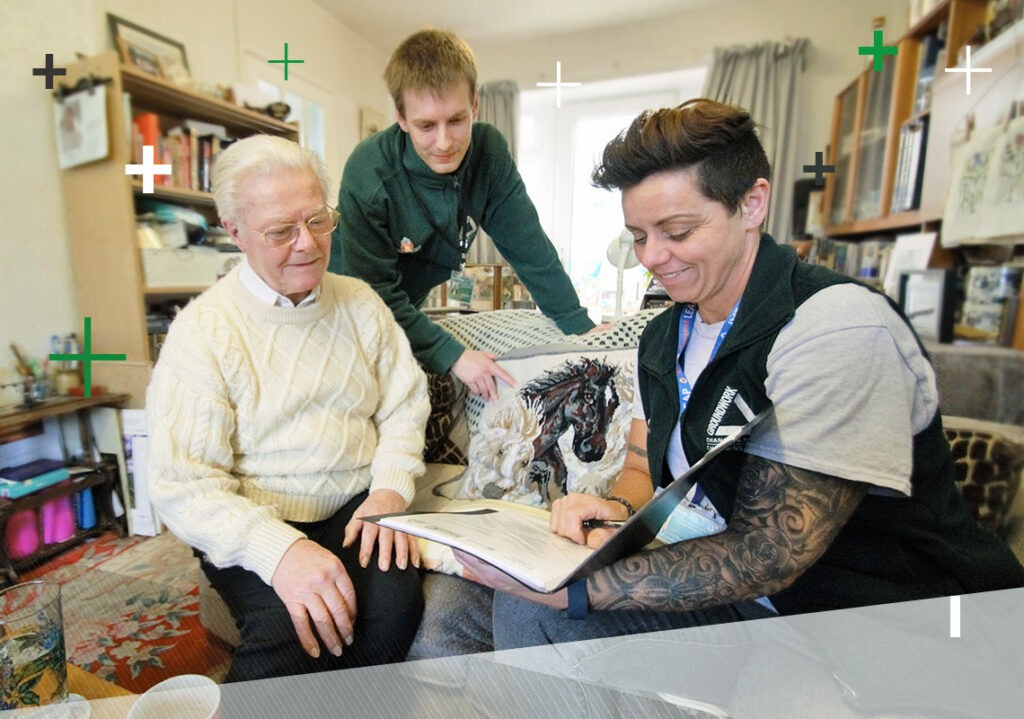The Energy Crisis – response to the energy price cap increase

As I sat listening to the Chancellor’s announcement on the energy price cap increase and the subsequent measures being put in place to soften the blow, I started to think about my own household budget.
How has it got to the point when someone in work, with a good salary, has to wonder about paying for heating and food?

This article was written on 03 February 2022 by Emily Thompson, Director of Climate Change & Fuel Poverty at Groundwork.
Emily works across the Northern Groundwork Trusts to support the development of the Green Doctor service, ensuring that our energy advice helps those people most in need.
As well as meeting the needs of people at risk of fuel poverty, Emily has diversified the team to provide technical home assessments including Retrofit Assessment and Coordination to enable Housing Associations and Local Authorities to meet the challenges of decarbonising their housing stock.
It’s bewildering. I read a Facebook post from a friend today who, as a single mum was wondering how she was going to manage her budget and make ends meet come April. Despite being in work she already uses a food waste distribution scheme as an ethical choice, but is conscious that come April she’s going to be relying on that to feed her and her daughter. She’s worried about having to choose between which bills to pay. And she is IN work.
I know I’m in a more comfortable position than her, having no children and a higher income. But with my partner working for himself on a seasonal wage, this winter has been hard enough. I’m actually glad I live in a band A property and will benefit from the rebate announced today.
We’re the energy stressed. Those in work but still struggling.
So it breaks my heart to think of all those people who are even worse off, those who are energy vulnerable. They might not identify themselves as living in fuel poverty, but this sector of society is growing.
In 2019 3.2million people were in fuel poverty. These are households who for the last few years have already been making that choice to not heat their home properly, not top up their energy meter, just so they can feed themselves or their family. That figure is set to rocket, with the general consensus being up to 6 million people will be in fuel poverty by April 2022.
In 2020/21 Groundwork supported 5,894 households in the North of England alone and distributed £169,927 in top ups for energy meters across the North. In the first half of this financial year we’ve already delivered 80% of these figures. And this is just in the North. I can only imagine how much this is set to grown in the coming months.
While much of the energy price rise is driven by global factors I have to wonder if the impact on the vulnerable in the UK isn’t as much to do with government policy choices as much as Russian wholesale gas prices. France, Germany, Spain and the Netherlands have significantly reduced taxes on energy to soften the blow for their citizens.
Whilst the Government announcement today sees a total of £350 help for householders its hugely insufficient to mitigate against an average increase of 50% on a households fuel bill -from an average of £467 in October 2020 to £955 by April 2022.
Such universal support is available to 4 out of 5 households and this is a policy choice rather than a targeted support which could have been achieved through the benefits system or a significant increase in eligibility for the Warm Homes Discount.
So while I benefit from the rebate, I personally feel outraged that this distribution of support hasn’t been better targeted to those who need it the most. For those who don’t pay council tax such as some tenants and benefits claimants, and the poorest tenth of families who don’t live in in band A-D properties.[ii] For those who are also likely to see the rate of inflation hit them the hardest as those on lowest incomes spend twice as much on food and bills as the richest families.
A £150 rebate on Council Tax Bills will result in a lower liability, but this will also reduce the Council Tax support received as awards are based on the percentage of income above the allowable living expense, so the proportion you pay remains the same.
In all, people already in receipt of Warm Homes Discount will receive an additional £10 a year. Pathetic support.
This means that those on the lowest incomes will still find themselves hardest hit and in significant crisis. While our Green Doctors will continue to provide telephone advice and home visits we recognise the changing and growing sector of society who are now in need of such support.
